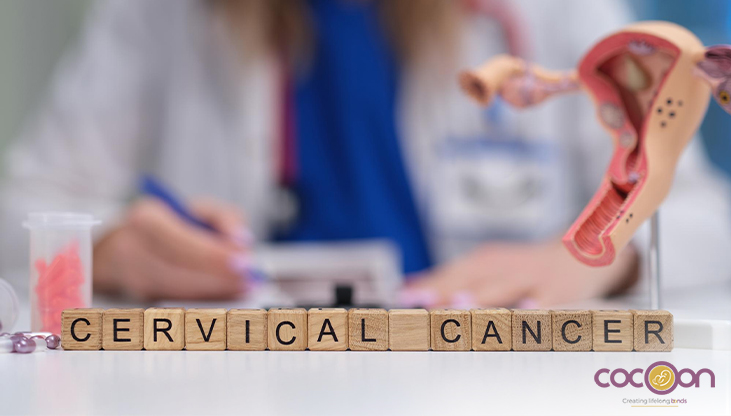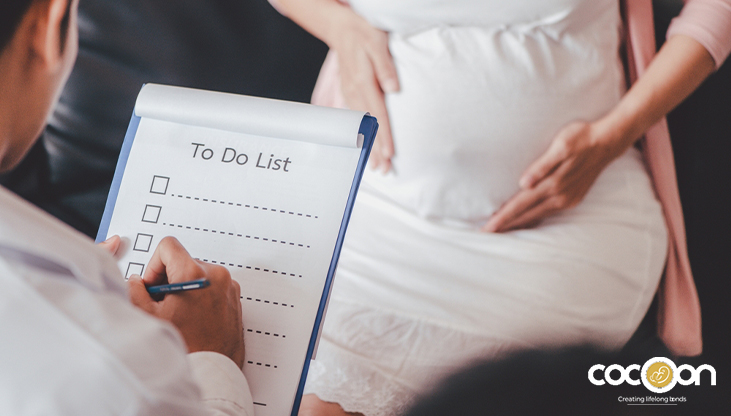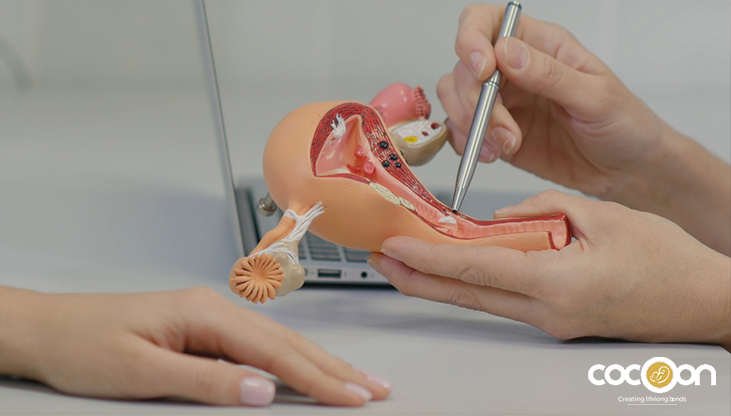Some gynecological issues, such as severe pelvic pain, endometriosis, or uterine bleeding after childbirth or during menopause, require intensive care. If nonsurgical treatment fails to address these issues, it may lead you and your doctor to consider surgeries such as endometrial ablation or hysterectomy. These techniques are safe and effective when done by a qualified professional, like at Cocoon Hospital.
However, after surgery, your body requires time and proper care to heal. Hence, following the doctor’s advice and gynecological surgery dos and don’ts is key for proper advice.
Dos and Don’ts After Gynecological Surgery
Adapting these do’s and don’ts after gynecological surgery helps your body’s healing system to work efficiently. Follow them to heal faster.
A. Don’ts After Gynecological Surgery
1. Don’t Carry Heavy Things
You should avoid lifting things over 3–4 kg for at least 4–6 weeks because excess physical strain increases intra-abdominal pressure. This can stress healing sutures and tissues, raising the risk of hernia or internal bleeding.
2. Don’t Engage in Intimate Activity
Do not engage in lovemaking activity for at least 6–12 weeks, or until the doctor’s approval. Early intercourse can bring in bacteria, cause full or partial separation of the edges of the vaginal cuff, and delayed wound healing by damaging fragile tissues.
3. Don’t Neglect Wound Hygiene
Refrain from soaking in tubs or swimming pools, as it can slow down skin cell repair. This can increase the risk of infection by damaging the natural healing microbiome and process.
4. Don’t Lead a Completely Inactive Life
Yes, rest is important; complete bed rest or an inactive life can lower blood circulation. This increases the risk of deep vein thrombosis (DVT, a blood clot that forms in a deep vein) and slows bowel recovery.
Hence, gentle walking is required to improve oxygen delivery and immune response and avoid clots.
5. Don’t Hurry to Normal Routine/Diet
Avoid going back quickly to work or eating heavy, spicy, or fatty foods because the digestive system and pelvic muscles need time to recover their activity.
The Other Don’ts After Gynecological Surgery:
- Do not smoke and drink
- Do not ignore constant pain and discomfort
- Do not overstress
- Do not remove any tape
- Do not skip scheduled follow-ups
B. Dos After Gynecological Surgery
1. Do Gentle Walking
Start gentle walking as per your doctor’s guidelines. This improves blood circulation, reducing the risk of deep vein thrombosis (DVT).
2. Do Maintain Good Food & Hydration
Drink plenty of fluids and consume nutritious foods rich in protein, iron, and vitamins. They help support the synthesis of collagen and improve immune function for faster healing.
3. Do Care for Your Incision (Clean & Dry)
It is one of the important laparoscopic or other surgery recovery tips. Keeping wounds dry and clean reduces the chances of bacterial growth. This allows the protective lining of your body's surfaces (or epithelial cells) to close the incision line faster.
4. Do Engage in Deep Breathing
Slow breathing helps increase your lung capacity. This helps prevent postoperative pneumonia (lung infection).
5. Practice Pelvic Floor Exercises
Practicing these exercises helps improve muscle tone and circulation in the pelvic region.
6. Do Observe Your Body’s Signs & Prioritize Rest
Sleep stimulates growth hormone release, promoting tissue repair. Also, listen to your body; if there is a sign of complication, consult your doctor immediately.
The Other Dos After Gynecological Surgery: Post-surgery care for women
- Eat a light meal
- Use a pillow to support your stomach area
- Wear loose and comfortable clothes
- Maintain a good posture
- Visit your doctor regularly for follow-ups
Signs of Recovery After Gynecological Surgery
Here are the signs that will help you understand if you are recovering well after a gynecological surgery, like a hysterectomy or a laparoscopy.
- Gradual increase in strength
- You will feel energetic
- Healthy sleep pattern
- Minimal swelling
- Less need for pain relief medicine
- Less fatigue
- Improved digestion and appetite
- Stable mood
Women’s Post-Surgery Health Tips
These health tips deliver the nutrients that your body needs to recover faster. Adopt them post-surgery so that you can quickly return to your normal life routine:
- Choose foods that fight constipation
- Include protein
- Limit processed foods
- Get your vitamin C
- Avoid alcohol and smoking
- 7-9 hours of rest each night
Conclusion
Don’t underestimate the power of recovery with these recovery tips after a hysterectomy or any other surgery. Because recovery is as important as gynecological surgery itself. Neglecting post-surgery care can ruin all the progress you achieved through surgery. Hence, always follow expert advice and stay committed to your healing journey.

















